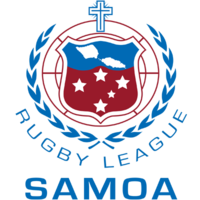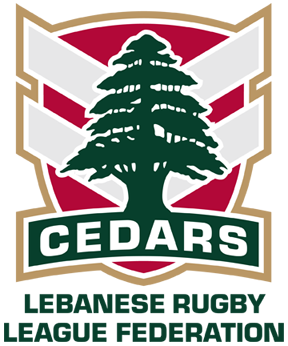Bracket
| Quarter-finals | Semi-finals | Final | ||||||||
| 11 November – Leeds | ||||||||||
| 16 | ||||||||||
| 18 November – Bolton | ||||||||||
| 26 | ||||||||||
| 6 | ||||||||||
| 12 November – Castleford | ||||||||||
| 49 | ||||||||||
| 54 | ||||||||||
| 25 November – Manchester | ||||||||||
| 6 | ||||||||||
| 12 | ||||||||||
| 11 November – Watford | ||||||||||
| 40 | ||||||||||
| 66 | ||||||||||
| 19 November – Huddersfield | ||||||||||
| 10 | ||||||||||
| 46 | ||||||||||
| 12 November – Widnes | ||||||||||
| 22 | ||||||||||
| 8 | ||||||||||
| 22 | ||||||||||
The 2000 Rugby League World Cup knockout stage took place after the group stage of the 2000 Rugby League World Cup and culminated in the 2000 Rugby League World Cup final. The quarter-finals consisted of eight teams; the top two teams from each group; Group A, Group B, Group C and Group D. [1]
| Quarter-finals | Semi-finals | Final | ||||||||
| 11 November – Leeds | ||||||||||
| 16 | ||||||||||
| 18 November – Bolton | ||||||||||
| 26 | ||||||||||
| 6 | ||||||||||
| 12 November – Castleford | ||||||||||
| 49 | ||||||||||
| 54 | ||||||||||
| 25 November – Manchester | ||||||||||
| 6 | ||||||||||
| 12 | ||||||||||
| 11 November – Watford | ||||||||||
| 40 | ||||||||||
| 66 | ||||||||||
| 19 November – Huddersfield | ||||||||||
| 10 | ||||||||||
| 46 | ||||||||||
| 12 November – Widnes | ||||||||||
| 22 | ||||||||||
| 8 | ||||||||||
| 22 | ||||||||||
England:
1. Paul Wellens, 2. Chev Walker, 3. Kris Radlinski, 4. Keith Senior, 5. Darren Rogers, 6. Sean Long, 7. Paul Deacon
8. Stuart Fielden, 9. Paul Rowley, 10. Paul Anderson, 11. Adrian Morley, 12. Mike Forshaw, 13. Andy Farrell.
Substitutes: 14. Tony Smith, 15. Scott Naylor, 16. Jamie Peacock, 17. Harvey Howard .
Coach: John Kear
Ireland
1. Steve Prescott, 2. Brian Carney, 3. Michael Withers, 4. Michael Eagar, 5. Mark Forster, 6. Tommy Martyn, 7. Ryan Sheridan
8. Terry O'Connor, 9. Danny Williams, 10. Barrie McDermott, 11. Chris Joynt, 12. Kevin Campion, 13. Luke Ricketson
Substitutes: Clinch, Mathiou, Barnhill, Southern. Coach: Steve O'Neill Andy Kelly
This was the England rugby league team's biggest ever loss. [2] By winning this match, New Zealand had again equaled their record for consecutive victories with five.
18 November 2000 |
| New Zealand | 49–6 | |
|---|---|---|
| Summary |
Reebok Stadium, Bolton Attendance: 16,032 Referee: Tim Mander (Australia) Player of the Match: Stephen Kearney (New Zealand) |
Wales became the first team in 12 months to score more than two tries against Australia. [3]
25 November 2000 |
| Australia | 40–12 | |
|---|---|---|
| Tries: Gidley 26' Hindmarsh 46' Lockyer 53' Sailor (2) 66', 69' Fittler 74' Barrett 76' Goals: Rogers (6/7) | Summary | Tries: Vainikolo 50' Carroll 57' Goals: H. Paul (2/2) |
Old Trafford, Manchester [4] Attendance: 44,329 Referee: Stuart Cummings (England) Player of the Match: Wendell Sailor (Australia) |
The 1985–1988 Rugby League World Cup was the ninth Rugby League World Cup tournament held and saw yet another change of format with competition stretched to cover almost three years. The national rugby league teams of Australia, France, Great Britain, New Zealand and Papua New Guinea played each other on a home and away basis. These matches were fitted into the normal international programme of three-match test series between the nations, with a pre-designated match from each series counting as the world cup fixture. The tournament culminated in the 1988 Rugby League World Cup final.
The 1989–1992 Rugby League World Cup was the tenth staging of the Rugby League World Cup, and continued to use the three-year format, stretching across the years 1989 to 1992. As with the 1985–1988 World Cup, teams played each other on a home-and-away basis. These matches were fitted into the normal international programme of three-match test series between the nations, with a pre-designated match from each series counting as the World Cup fixture. The tournament culminated in the 1992 Rugby League World Cup final.
The 2000 Rugby League World Cup was the twelfth staging of the Rugby League World Cup. It was held in the United Kingdom, Ireland, and France, and took place between 28 October and 25 November 2000. Sixteen national teams competed in four groups of four, playing each other once over three weekly rounds before a series of play-offs that culminated in the final between Australia and New Zealand. Tournament favourites Australia defeated New Zealand in the final, claiming their sixth consecutive and ninth total Rugby League World Cup title. Australian winger Wendell Sailor was named player of the tournament.

The 2008 Rugby League World Cup was the thirteenth staging of the Rugby League World Cup since its inauguration in 1954, and the first since the 2000 tournament. The tournament was held in Australia from 26 October, culminating in the final between Australia and New Zealand on 22 November.

Wayne James Bennett AM, also known by the nickname "Benny", is an Australian professional rugby league football coach who is the head coach of the Dolphins in the National Rugby League He has previously coached the South Sydney Rabbitohs, the Brisbane Broncos, the Newcastle Knights, the St George Illawarra Dragons, the Canberra Raiders, the Queensland Maroons State of Origin team, the NRL All Stars and the Australian Kangaroos national team as well as the England and Great Britain national teams.

The Ireland men's national rugby league team, known as the Wolfhounds, is organised by Rugby League Ireland and represents Ireland in international rugby league. The representative team is composed largely of players of Irish descent who compete in the Super League as well as the Australasian National Rugby League. Ireland is also represented by an Ireland A side, which is made up of players from the Irish domestic competition.

The Great Britain national rugby league team represents Great Britain in rugby league. Administered by the Rugby Football League (RFL), the team is nicknamed The Lions.

The Australian national rugby league team, the Kangaroos, have represented Australia in senior men's rugby league football competition since the establishment of the 'Northern Union game' in Australia in 1908. Administered by the Australian Rugby League Commission, the Kangaroos are ranked first in the RLIF World Rankings. The team is the most successful in Rugby League World Cup history, having contested all 16 and won 12 of them, failing to reach the final only once, in the inaugural tournament in 1954. Only five nations have beaten Australia in test matches, and Australia has an overall win percentage of 70%.
Andrew David Farrell, is an English rugby union coach, and a former rugby league and rugby union player. He has been head coach of the Ireland national team since 2019.

The Tonga national rugby league team represents Tonga in rugby league football. They are currently the second ranked team in the world. The team was formed to compete in the 1986 Pacific Cup, and have competed at six Rugby League World Cups, starting in 1995 and continuing consecutively until the most recent tournament. Their best result was at the 2017 Rugby League World Cup, where they were semi-finalists.

The Samoa national rugby league team represents Samoa in rugby league football and has participated in international competition since 1986. Known as Western Samoa before 1997, the team is administered by Rugby League Samoa and are nicknamed Toa Samoa.

The Lebanon national rugby league team represents Lebanon in rugby league football. Nicknamed "the Cedars" after the Lebanese cedar tree, the team was formed by Lebanese Australians in 1997 and have been administered by the Lebanese Rugby League Federation since 2002.

Paul Deacon is an English rugby union coach who is the head coach of the Sale Sharks in Premiership Rugby, and former a professional rugby league footballer and coach.

Michael Cheika is an Australian rugby union and rugby league coach, and former rugby union player. He is currently head coach of Argentina in rugby union and Lebanon in rugby league.

The Rugby League World Cup is an international rugby league tournament contested by the top national men's representative teams. The tournament is administered by the International Rugby League and was first held in France in 1954, which was the first World Cup held for any form of rugby football.

The 2003 Rugby World Cup was the fifth Rugby World Cup and was won by England. Originally planned to be co-hosted by Australia and New Zealand, all games were shifted to Australia following a contractual dispute over ground signage rights between the New Zealand Rugby Union and Rugby World Cup Limited. The pre-event favourites were England, regarded by many at the time as the best team in the world. New Zealand, France, South Africa and defending champions Australia were also expected to make strong showings, with New Zealand being second favourites after victory in the southern-hemisphere Tri-Nations championship.

The 2017 Rugby League World Cup was the fifteenth staging of the Rugby League World Cup tournament and took place in Australia, New Zealand and Papua New Guinea between 27 October and 2 December 2017. The tournament featured the national teams of 14 Rugby League International Federation member countries who qualified through either standing in the previous tournament or a series of qualification play-off matches. In the final, defending champions Australia, playing in their 14th consecutive final, defeated England at Brisbane's Lang Park.
Ronald Phillip O'Regan is a New Zealand former rugby league footballer, and coach who represented New Zealand between 1983 and 1986. His nephew, Daniel, played for the New Zealand Warriors.
The New Zealand women's national rugby league team, also known as the Kiwi Ferns or New Zealand Kiwi Ferns, represents New Zealand in Women's rugby league. They are administered by the New Zealand Rugby League.
The 2000 New Zealand rugby league tour of Great Britain was a tour by the New Zealand national rugby league team to compete at the 2000 Rugby League World Cup. New Zealand dominated Group 1 of the tournament thrashing Lebanon, the Cook Islands and Wales with a combined score of 206–28, before winning their quarter-final against France and their semi-final against England to qualify for the final. In the final, they lost to defending champions Australia 12-40 to finish runners-up in a World Cup tournament for the second time.